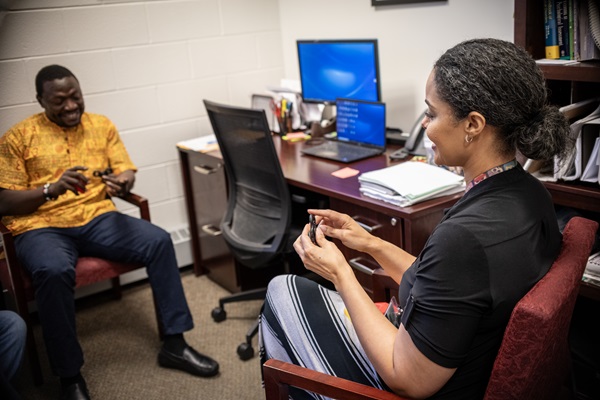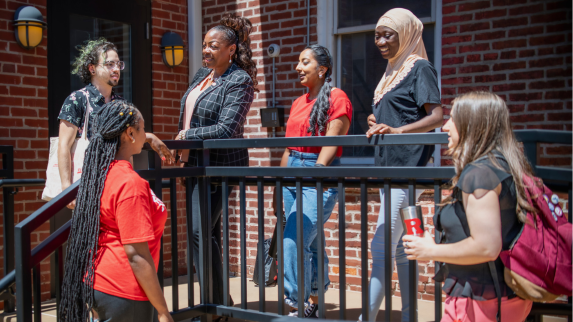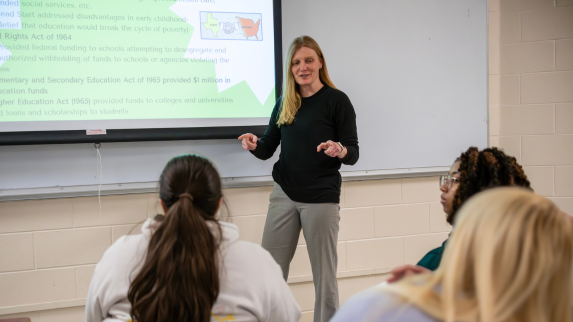Prioritizing Wellness in Graduate School
Graduate school is a time of ambition, discovery, and transformation—but staying well is just as important as excelling academically. In this episode, Dr. Stacy Haynes, a clinical and health educator with the Student Wellness Center, is joined by Joseph Abbas, a Prevention Science PhD student, to explore how wellness shapes the graduate experience.
They discuss the pressures of academic life, the impact of daily habits on mental and physical well-being, and the campus resources designed to help students thrive. From Wellness Wednesdays to community-driven initiatives, they share practical ways to build balance, resilience, and a strong foundation for success—because well-being isn’t just important in graduate school, it’s essential.


Related to this Story:
Nurturing Student Well-Being at Rutgers–Camden
The Rutgers–Camden Student Wellness Center is dedicated to fostering the holistic health of our students, recognizing that a balanced mind and body are essential for academic and personal success. Our compassionate team offers comprehensive medical and mental health services, including primary care, counseling, substance use support, psychiatric care, health promotion, and sports psychology. We also address fundamental needs through initiatives like the Raptor Pantry, ensuring access to nutritious food for students facing food insecurity. Located on the second floor of the Campus Center at 326 Penn Street, the Wellness Center operates Monday through Friday, 8:30 am to 4:30 pm, with extended evening hours on select days. Appointments can be scheduled by calling 856-225-6005. At the Student Wellness Center, your health and happiness are our priorities, and we’re here to empower you on your journey to success and fulfillment.
Advancing Community Well-Being: Prevention Science Graduate Programs at Rutgers–Camden
The Rutgers–Camden M.S. and Ph.D. programs in Prevention Science offer an interdisciplinary approach to tackling complex challenges affecting both communities and individuals. Emphasizing intervention strategies, causal analysis, and advanced statistical methods, these programs equip students with the skills necessary for high-quality research in fields such as international development, education reform, and healthcare. The Master of Science program requires 34 credits, while the Doctor of Philosophy program entails 61 credits, with both options available for full-time or part-time enrollment. Graduates are prepared to address pressing social issues and contribute to positive change across various sectors.
Spotlights & Stories

Want more stories like this? Spotlights and Stories highlights alumni, faculty, staff, and student experiences through stories, video, and voice. Learn more
Explore Graduate School Programs

Rutgers Graduate School-Camden offers 20+ graduate certificates, master’s, and doctoral programs across various disciplines, including biology, data science, creative writing, and psychology. We take pride in our academic diversity. Learn more
Former Students, Get Involved

Stay connected with Rutgers-Camden! Engage with former students, attend events, and support current students. Your involvement strengthens our community and helps shape future success. Learn more
